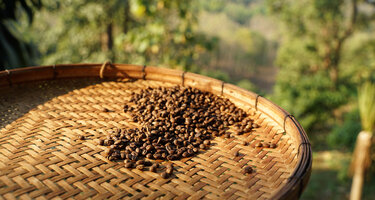International Coffee Organisation (ICO)
The International Coffee Organisation (ICO) is the only intergovernmental organisation strengthening the cooperation of the global coffee sector. Its members represent 93% of global coffee production and 63% of global consumption (2022)
In 2018, ‘Resolution 465’ on the coffee crisis was adopted. This has resulted in an ICO-organized sector dialogue between relevant stakeholders in the sector and the wider international community, as well as the ‘London Declaration’. This Memorandum of Understanding was signed by twelve private sector companies and endorsed by the International Coffee Council.

In the ICO, coffee, public and private task forces, we are working with a lot of partners to help and to support the producers and all the supply chain.
To implement the two resolutions, the Coffee Public-Private Task Force was established. It currently consists of 18 representatives of the private sector and 17 importing and exporting countries (incl. The EU) as representatives of the ICO member states. In addition, the Task Force is supported substantively and financially by several international organizations and institutions. In particular, the German Federal Ministry for Economic Cooperation and Development supports the work of the Task force through the sector programme of the Sustainable Agricultural Supply Chains Initiative (SASI) implemented by GIZ.
The overall goal of the Task Force is to transform the coffee sector and create a sustainable and prosperous future for coffee producers and the sector as a whole.
On that basis, a roadmap was developed that provides an overview of the agreed commitments and milestones of the task force in terms of time and content. It relates to the period 2020 to 2030.
The roadmap includes five Technical Work Streams (TWs) covering different subject areas and driving the sector-wide dialogue. Each TW has defined goals that governments work on together with organizations and the private business sector.
Aim
- Sector-wide transparency on a common understanding of the actual costs of production and the relative efficiency of value transmission calculated as differences between farm-gate prices and the FOB prices.
Lead: first Enveritas, now Committee on Sustainability Assessment (COSA)
*Farm-gate price = the price of the product available at the farm, excluding any separately billed transport or delivery charge; included in FOB price
**FOB price = price buyers pay when the coffee is ready for shipment; includes coffee price, logistics costs, customs duties and export taxes
